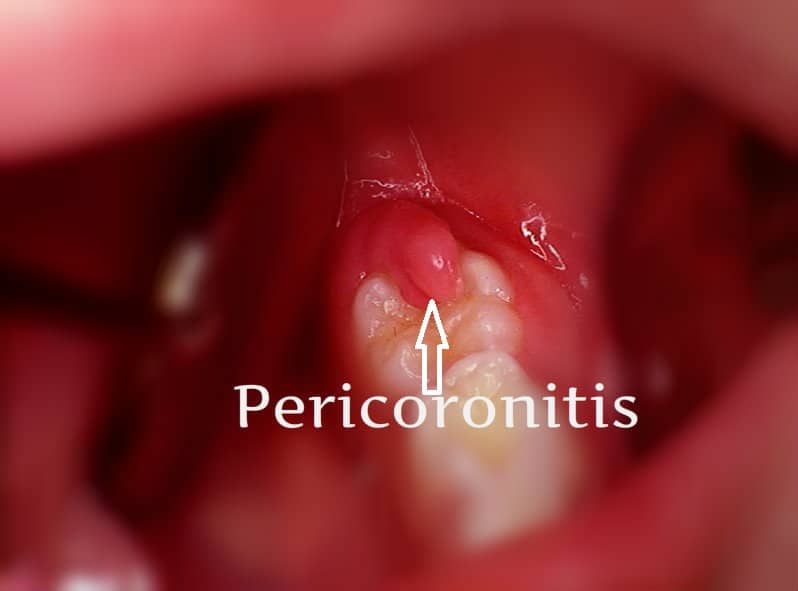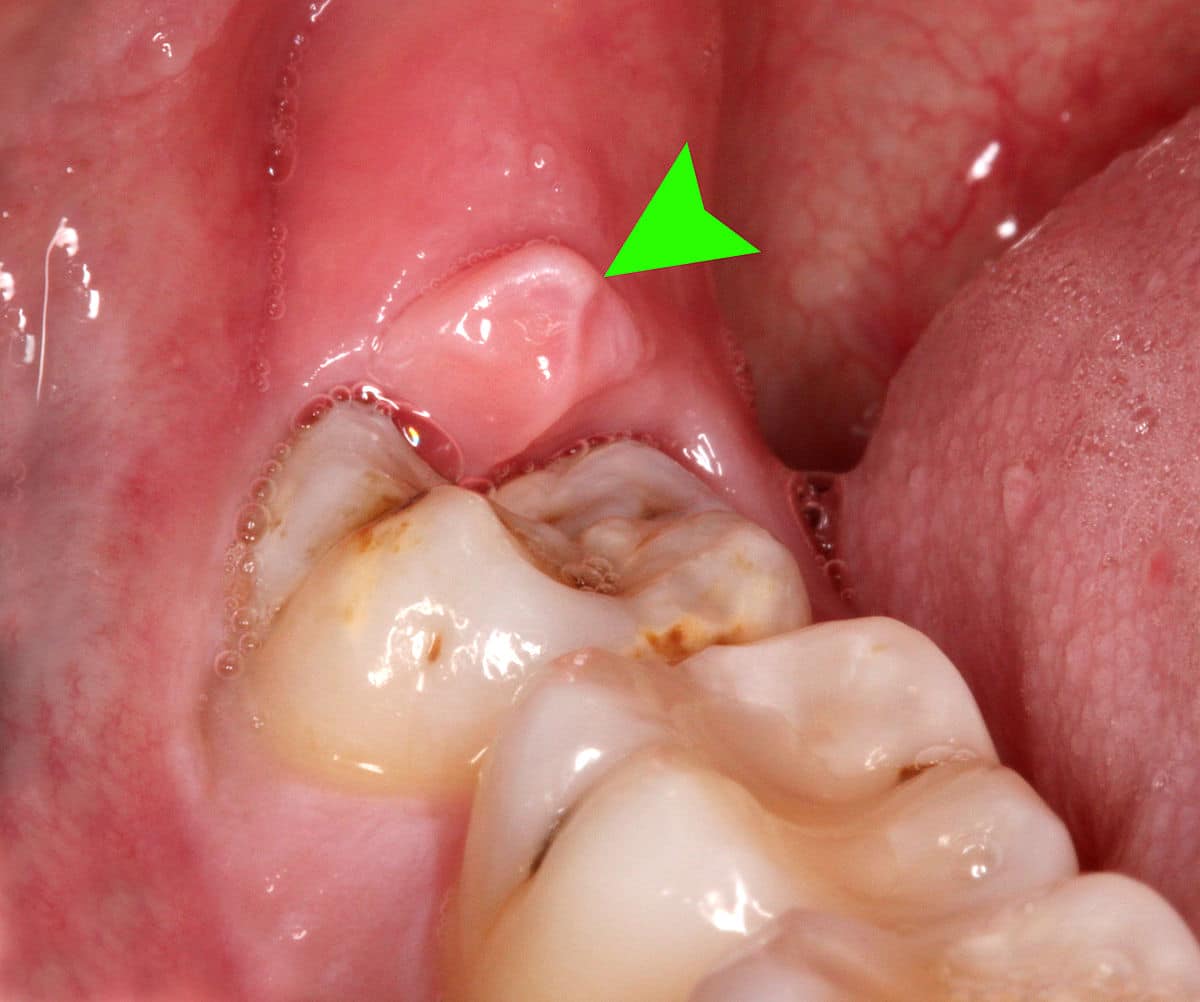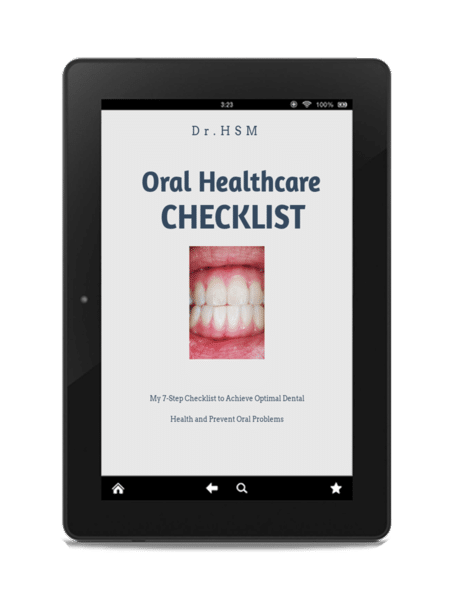Swollen gums over wisdom teeth can be a common dental issue that can cause discomfort and pain. Wisdom teeth are the last set of molars to grow in the mouth, typically between the ages of 17 and 25. When they emerge, they can cause various dental problems, including swollen gums.
This condition is called pericoronitis.

The swelling can be painful, make it hard to eat, drink, or talk, and indicate underlying dental issues.
In this blog post, I'll be telling you the causes of swollen gums over wisdom teeth, the treatments available to alleviate the discomfort, and the preventive measures to maintain good oral health.
Causes of Swollen Gums Over Wisdom Teeth

Swollen gums over wisdom teeth can occur due to several reasons, including:
Discover My Ultimate Checklist for Maintaining Healthy Teeth and Gums on a Daily and Weekly Basis
From Brushing to Flossing: Follow My 7-Step Checklist to Achieve Optimal Dental Health and Prevent Oral Problems.

Impacted Wisdom Teeth: Wisdom teeth can become impacted if they do not have enough space to emerge in the mouth. Impacted wisdom teeth can cause swelling, pain, and infection in the surrounding gums.
Gum Infection: Gum infections, also known as periodontitis, occur when bacteria and food particles become trapped between the wisdom teeth and the gums. This can lead to inflammation and swelling of the gums.
Gum Disease: Gum disease is a chronic condition that affects the tissues surrounding the teeth, including the gums. When left untreated, gum disease can cause swelling, bleeding, and receding gums.
Poor Oral Hygiene: Poor oral hygiene can lead to the buildup of plaque and bacteria in the mouth, which can cause gum inflammation and swelling.
Treatments for Swollen Gums Over Wisdom Teeth

The treatment for swollen gums over wisdom teeth will depend on the underlying cause of the swelling. Here are some of the treatments that your dentist may recommend:
Antibiotics: If the swelling is caused by a bacterial infection, your dentist may prescribe antibiotics to help clear up the infection.
Warm Saltwater Rinse: A warm saltwater rinse can help reduce inflammation and promote healing. Mix a teaspoon of salt in a cup of warm water and rinse your mouth for 30 seconds, then spit it out.
Pain Relievers: Over-the-counter pain relievers, such as ibuprofen or acetaminophen, can help relieve the pain associated with swollen gums over wisdom teeth.
Improved Oral Hygiene: Improving your oral hygiene can help prevent and reduce swelling in the gums. Make sure to brush your teeth twice a day, floss regularly, and use an antiseptic mouthwash.
Preventing Swollen Gums Over Wisdom Teeth
Preventive measures can help keep your gums healthy and prevent swollen gums over wisdom teeth. Here are some tips:
Practice Good Oral Hygiene: Brush your teeth twice a day, floss regularly, and use an antiseptic mouthwash to prevent plaque buildup and gum inflammation.
Visit Your Dentist Regularly: Regular dental checkups can help detect and treat any dental issues before they become more severe.
Avoid Hard and Crunchy Foods: Hard and crunchy foods can irritate the gums and cause swelling. Stick to soft foods while your gums heal.
Use Ice Packs: If you experience swelling, use an ice pack to reduce inflammation and soothe the gums.
Quit Smoking: Smoking can increase the risk of gum disease and decrease blood flow to the gums, leading to swelling and inflammation.
Conclusion
Swollen gums over wisdom teeth can be uncomfortable and painful, but there are treatments available to alleviate the discomfort.
Discover My Ultimate Checklist for Maintaining Healthy Teeth and Gums on a Daily and Weekly Basis
From Brushing to Flossing: Follow My 7-Step Checklist to Achieve Optimal Dental Health and Prevent Oral Problems.

Preventive measures such as good oral hygiene, regular dental checkups, avoiding hard and crunchy foods, and quitting smoking can help keep your gums healthy and prevent swelling over wisdom teeth.
If you experience swelling or pain around your wisdom teeth, make sure to consult with your dentist for proper diagnosis and treatment. Your dentist can help determine the underlying cause of the swelling and recommend the appropriate treatment to alleviate the discomfort.
By taking care of your oral health and following these tips, you can keep your gums healthy and prevent dental problems, including swollen gums over wisdom teeth.
